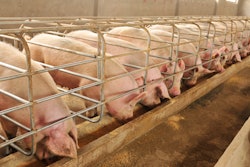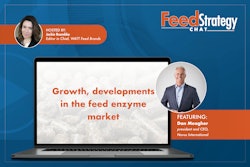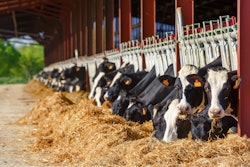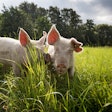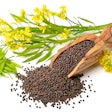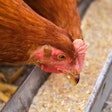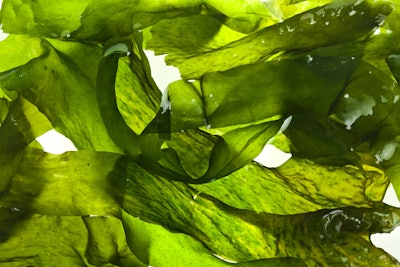
Using insects and single-cell proteins to upcycle marine byproducts could hold the key to making these novel feed ingredients even better additions to aquafeed, according to research from the University of Gothenburg in Sweden.
The research, led by doctoral student and research associate Niklas Warwas, started out as a project looking for new ways to make use of waste streams from marine industries, and from algae production in particular. Byproducts from algae and fish processing can be used as substrates to grow insects or single-celled organisms, Warwas said, but his research indicates that using marine-adapted insects and yeasts yields better results — and could come with some interesting benefits for feed formulators.
In one of two trials, Warwas' team raised a marine yeast on fish processing water. The resulting yeast contained 55% protein and significant levels of omega-3 fatty acids, and like terrestrial yeasts contains compounds that can be used to modulate the immune system. Rainbow trout raised on diets that contained the yeast grew as fast as those fed diets containing commercial soy protein concentrate and fish meal instead, Warwas said.
Another trial demonstrated that meals from seaweed flies raised on waste from an algae farm also contained higher levels of omega-3s. Trout fed the marine fly meal exhibited better growth and improved feed intake compared with trout fed black soldier fly, according to the study.
Warwas noted that black soldier fly, a more common insect reared for insect meal, can be raised on seaweed waste, but in previous trials didn't seem to thrive on seaweed-based substrates. The marine flies, in contrast, took to the seaweed more readily and absorbed more of the seaweed's essential oils — perhaps because the flies eat seaweed in their natural environment.
Although the study did not evaluate the potential economics of either feed ingredient, Warwas said they could represent economically attractive waste treatment alternatives to algae and fish processors who must pay to dispose of unused byproducts.
But because the marine flies and yeast are not the same species used in animal feed today, both would have to be approved by regulatory authorities before they could be included in commercial diets, Warwas said. The use of algae or fish processing waste as a substrate for raising insects or yeast would also have to be approved in the European Union, he said.

